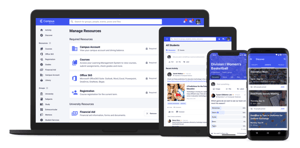It's ironic that at an institution of formal learning, your department may just field more questions and answers than any other department on campus!
 Can we work from home? When will we get better dental coverage? Can I take money out of my retirement early? Can I get the forms for a new hire? Who picked these plans anyway?
Can we work from home? When will we get better dental coverage? Can I take money out of my retirement early? Can I get the forms for a new hire? Who picked these plans anyway?
I don't have to go on. You know that the list is almost endless.
If you have been in HR for a while, you likely believe all of this to be part of the job. You may not have realized how much of the job would be answering questions, directing back to systems, looking up bizarre exceptions for constituents, but now you do.
Of course, Human Resources is a lot more than questions. From counseling to advising to legal to interviewing to hiring to firing and much, much more, the job of HR is octopus-like.
HR Systems
But while a lot of HR people likely got into the job to help people, the systems and policies and processes that sit behind it all can make that challenging. Even the best HR systems are incomplete, seeing the need for people (both HR staff and customers alike) to use different logins or passwords, go to different URL's, struggle to find the right support for the right system so as to answer the right question...and the list goes on.
Those system woes may be the fault of nobody, or perhaps a struggle with IT, but that likely does not matter. Who gets blamed? You do. It's always you.
So what if you could design a system with better access to the platforms and systems your institution uses? How might you tackle the problem of disconnected people, disparate systems, and hard to manage support?
A Better Way
Unfortunately, the term "student portal" is how most people find a solution like ours. But calling Campus a student portal is like calling Google a search engine. There is so much more to it...
Just like students need quick and easy access to their learning system or the registration system, anyone who works for the school needs quick access to benefits, healthcare systems, or potentially time card entry. But the key is that not all people need equal access to all things. So, while most systems create a "benefits portal" for people, placing all possible links on a single page, HR experts know that always leads to questions. People click the wrong thing or simply refuse to look through the cumbersome lists, pinging HR for help.
 Campus works differently. Campus asks for your input regarding which platforms and systems a person likely needs, then displays (only) the right tools to the right people. Employees can always add any platform or tool at any time, but they likely only see a handful of links, not dozens. And they see those links across all of their device types!
Campus works differently. Campus asks for your input regarding which platforms and systems a person likely needs, then displays (only) the right tools to the right people. Employees can always add any platform or tool at any time, but they likely only see a handful of links, not dozens. And they see those links across all of their device types!
Getting into and around the Campus Intranet is also far more seamless than typical HR portals. Single sign-on access to every platform and tool is the start. But in some cases, the integration goes beyond that, allowing systems to push alerts or notifications to people. Imagine a health alert pushing to a mobile device or a payday notification showing up in a person's browser.
Again, if building a system from scratch, you might create a system that allowed for more support options. Perhaps allowing employees to talk with other employees might help! After all, higher education is pretty collegial. Campus tries to help with support in several ways. First, crowdsourcing is always an option. While certainly not a requirement, people can help people get answers to HR questions. (And that can be helpful as sometimes, HR representatives need to speak the party line, whereas employees can speak frankly with other employees, no?)
But, support goes beyond that. Campus will ingest your FAQ's, whether 10 or 10,000. As people start to type, "How can I..." or "What is the...", those questions will populate, helping people in the moment.
And helping people in the moment is what Campus does best. Keywords and key-phrases are constantly monitored by the system, alerting a person, department, team, or others when that word or phrase has been used anywhere in the system (not just the HR area). That means HR staff can click on a notification instantly and help people in seconds instead of across days.
Campus works to connect everything that matters to you. From systems to people to support and beyond, Campus offers HR departments a very new kind of experience. And regardless of the age of some of those systems, Campus makes the front door look nice and feel intuitive. No more hunting around clunky systems for what a person needs. Everything is right where they need it, right away.
We hope you will contact us about the difference Campus can make in connecting your institution. Campus really can help you get back to putting the "Human" in Human Resources.
The Campus Team


